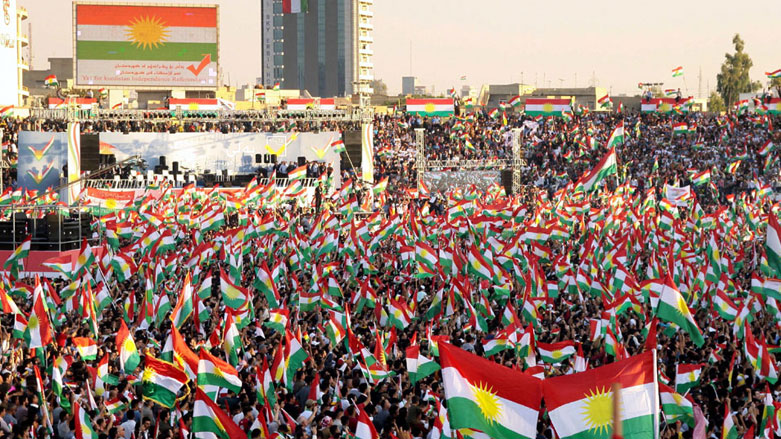Kurdistan to take path of independence if Iraqi partnership fails: Kurdish official

ERBIL (Kurdistan 24) – Kurds will "take the path" of independence if the principle of partnership and political pluralism fails in Iraq, a leader in the Kurdistan Democratic Party (KDP) said on Friday.
Rozh Nouri Shawayis, a KDP politburo member who served as Deputy Prime Minister of Iraq from 2009 until 2015, made the comments to Kurdistan 24 while campaigning for his party in Sulaimani province, just one week before national elections.
“We must make efforts and strive to implement the constitution, and we are working to form a government of real partnership that is broad-based and balanced,” he said.
“If this thing is achieved, it will be good [for the Kurds], but we will not say we are 100 percent satisfied because there is no guarantee of rights in this country and the [Middle Eastern] region.”
“If this is not achieved," Shawayis continued, "we will take the path that we started with the referendum. We are determined to do what the people [of Kurdistan] are searching for, which is the independence of Kurdistan.”
National legislative elections are scheduled to be held on May 12 across the country, including the Kurdistan Region. It is Iraq's first election after the three years of war against the Islamic State (IS).
On Sep. 25, the Kurdistan Region held a referendum on independence, which saw 93 percent of people favoring future secession from Iraq.
KDP, the largest Kurdish political party in the region, was the primary initiator of the vote and managed its implementation.
Lack of partnership in Baghdad, a budget crisis, disputed territories, multiple claims of constitutional violations, and oil issues were all factors that pushed Kurds to hold the referendum, according to regional leaders.
Kurds and Sunni Arabs, who together make up 40 percent of the nation's population, have long criticized the Shia-majority government for dominating power in post-2003 Iraq and marginalizing both minorities.
Editing by John J. Catherine
